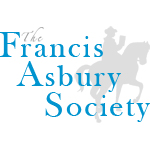scripture reading: Luke 12:13–21
What’s in a Name?
But God said to him, “You fool!” (Luke 12:20)
My mother taught me to not call people names. And yet in one of his parables, Jesus described how God himself called someone a “fool” (Luke 12:13–21). This is all the more remarkable when we remember that Jesus had specifically commanded his followers not to call any-one by that name (Matthew 5:22). The parable describes a man who wanted to expand his farming business. While many of us would have called him visionary, bold, or shrewd, God called him a “fool.” Looking beneath the façade of business strategies and financial planning, God saw a heart filled with folly. And such foolishness led inevitably to destruction. Folly always does.
This story raises for us all some very good questions. How do you recognize a fool? What constitutes folly? What are the marks that characterize a moral imbecile? More importantly, is it possible to fool-proof my life so that the farmer’s fate doesn’t become my own? This parable helps us to recognize what are perhaps the three most prominent characteristics of a fool.
,. More, more, more. I will tear down my barns and build bigger ones (v. 18). A fool is never content with what he has. The secret to happiness always lies in having more: a few more barns, a little more money, a bigger house, a better retirement plan, another title beside my name, etc. But greed is like drinking sea water: the more you drink the thirstier you become. It is a monster who is never satisfied. It’s not only sinful to want more, it’s dumb.
,. Now, now, now. Eat, drink and be merry (v. 19). The fool lives only for today. He wants to grab for all the gusto he can before it’s too late. The lust for short-term happiness drowns out the prospect of long-term joy. The fool cannot grasp the principle of delayed gratification.
,. Me, me, me. “Its all about me.” The fool’s tiny universe is egocentric, bounded on the north, south, east and west by himself! He really believes that God’s great purpose in creating the universe was to ensure that at the end of the day he has had a good time. Happiness, not holiness, is the great aim of life. The pronouns in the farmer’s vocabulary tell the story: What shall I do? I have no place to store my crops. . . . This is what I will do. I will tear down my barns and build bigger ones, and there I will store all my grain and my goods. And I will say to myself . . . ‘Take life easy.’ (vv. 17–19)
Foolproofing your life involves studying the farmer’s choices and then doing just the opposite!
,. Rather than living for more, learn to be content with what you have (Phi- lippians 4:12–13). It really is more blessed to give than to get (Acts 20:35).
,. Rather than living for now, invest your greatest treasures in heaven (Matthew 6:19–21). Choose long-term joy over short-term happiness.
,. Rather than living for me, deny yourself. It is only when you lose yourself in God and others that you find who you really are (Luke 9:23–24).
He is no fool who gives what he cannot keep to gain that which he cannot lose. —Jim Elliot
point to ponder • Are you so focused on short-term happiness that you are jeopardizing your long-term joy?
prayer focus • For the Holy Spirit to reveal any foolishness in your life.
